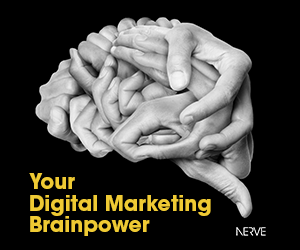Keeping up with the newest trends and advances in digital marketing can be challenging. Some emerging tendencies in digital marketing are expected to significantly alter current practices in the near future.
The growing prevalence of AI and ML in digital marketing is one of the industry’s most notable developments. Automating client segmentation, content production, and ad targeting are just some of the marketing duties that can now be carried out with the help of these new technologies. In addition to boosting the precision and efficiency of their advertising, this can help businesses save time and money.
The development of targeted advertising is another sector to observe. Using the vast amounts of consumer information at their disposal, modern businesses can now target specific audiences with ads that are more likely to resonate with them. With this information, businesses can create more targeted and effective marketing initiatives, which in turn can increase conversion rates and consumer satisfaction.
The role of social media in digital marketing is also expanding. Social media sites like Facebook, Instagram, and Twitter have emerged as primary means via which companies may interact with their target audiences and raise product awareness. Specifically, businesses will use social media to advertise to specific audiences, publish and distribute content, and interact with customers in the future.
The rising significance of mobile marketing is another trend to watch. Since more and more people are using their smartphones to surf the web, it is essential for companies to make their sites and promotional materials mobile-friendly. That’s why it’s important to cater to mobile consumers with a responsive layout, quick load speeds, and tailored information.
In general, it seems that artificial intelligence (AI), machine learning (ML), customized marketing (CM), social media (SM), and mobile optimization will play larger roles in digital marketing in the future. A company’s chances of succeeding in the digital sphere improve if it recognizes and responds to these developments.
In addition to the aforementioned shifts, there are a few other innovations that will shape the future of digital marketing that companies should consider.
A prime example of this is the boom in popularity of online video. Because of the growing popularity of social media video platforms like YouTube, Facebook, Instagram and TikTok, more and more companies are incorporating video into their marketing strategies. Short, catchy commercials sit comfortably with lengthier, more in-depth videos that really teach the viewer something.
In addition, influencer marketing has become increasingly popular. Social media “influencers” are people who have a sizable online following and can sway the opinions and actions of their fans and followers, including their shopping habits. These days, more and more companies are teaming up with influential people to market their products and services, capitalizing on the credibility and audience size of the influencer to increase sales.
Finally, it’s noteworthy to highlight the increasing significance of user-generated content (UGC). User-generated content, or UGC, is content that is not produced by the company itself. It might be anything from comments on products to images shared on social media. The utilization of user-generated content (UGC) is on the rise since it not only provides businesses with a rich resource of information for their marketing efforts, but also helps to establish trust and credibility among potential customers.
In conclusion, it is likely that a variety of factors, including artificial intelligence and machine learning, personalized marketing, social media, mobile optimization, video content, influencer marketing, and user-generated content, will shape the future of digital marketing. Successful digital marketing today requires businesses to recognize and respond to these shifting consumer behaviors.






